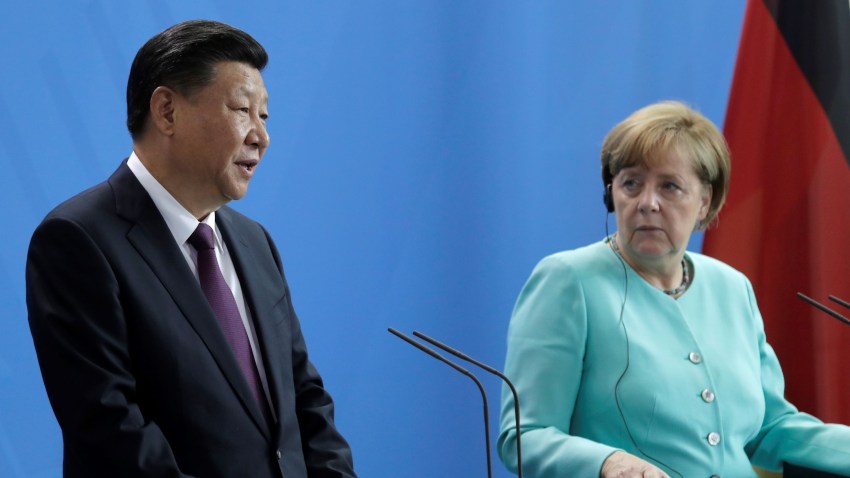In the immediate aftermath of Russia’s invasion of Ukraine, a once-hesitant Germany was shocked into reorienting its national security posture. In response to Moscow’s aggression, Chancellor Olaf Scholz proceeded to announce the creation of a 100-billion-euro supplemental fund for the German military, halt the approval of the Nord Stream 2 natural gas pipeline and support international sanctions and energy embargoes against Russia.
This same sensibility, in which crisis and opportunity converge, has also reinvigorated the long-standing debate in Germany over the country’s dependence on trade with China. Various factions within the Ampelkoalition, or the “traffic light coalition” government made up of the Social Democrats, the Greens and the Free Democrats, are urgently scrutinizing bilateral trade relations, with an eye to recalibrating existing ties with China to better integrate security concerns that have gathered steam in recent years. The challenge for the coalition government will be to accomplish this objective without damaging Germany’s long-term economic interests.
Germany’s dependence on trade with China began to emerge after the 2008 financial crisis, when former Chancellor Angela Merkel embraced China’s thriving market as an outlet for Germany’s exports, at a time when most of the world’s economies were in free-fall. Taking note of China’s human rights record, of which Merkel was a critic, this economic-driven approach was known as wandel durch handel, or “change through trade,” emphasizing engagement and commercial interconnectedness as a way to advance liberalism within China. Merkel would also go on to use Germany’s trade relationship with China as a hedge against what was perceived to be an increasingly unreliable United States, particularly during the Trump administration, which slapped tariffs on European steel and aluminum exports and repeatedly threatened to do the same for German automobiles.

